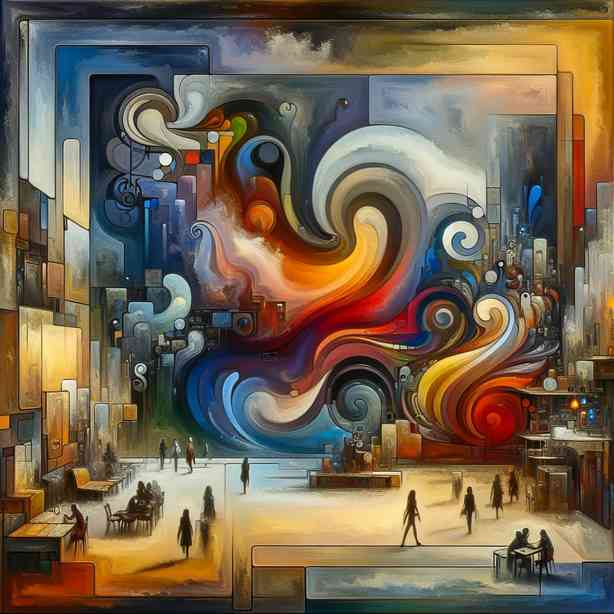
The canvas that keeps coming back into your life might represent many things for different people. For some, it is a metaphor for persistent challenges and unresolved issues that resurface time and again. For others, it could symbolize relationships and connections that refuse to fade away, no matter how much distance one tries to create. In a broader sense, this canvas also encapsulates the concept of self-discovery and personal growth, as it continuously invites us to reflect on our choices and experiences.
Life often presents us with situations that compel us to confront unresolved feelings or thoughts. These recurring experiences act like a canvas upon which we paint the story of our lives. Each stroke, each color represents a different emotion, a lesson learned, or a moment cherished. When this canvas reappears in our lives, it may be an invitation to reassess what we have done or not done. It encourages us to connect the dots of our past experiences and recognize patterns that may not serve our current selves.
As we journey through life, we encounter various people, challenges, and opportunities that shape who we are. Each of these elements contributes to the canvas of our existence. Yet, it often seems as though certain themes or issues refuse to fade away, appearing again at unexpected moments. This phenomenon is not merely a coincidence but rather a profound aspect of the human experience. It draws our attention to the parts of ourselves that require deeper understanding and healing.
For example, consider a person who struggles with abandonment issues. No matter how many times they change their circumstances—whether it be a job, social circle, or romantic relationship—they may notice that the fear of abandonment still lurks in the shadows. This recurring issue is like a canvas that returns, beckoning the individual to delve deeper into their past and confront the origins of their fears. It is a reminder that healing takes time, and the journey often involves revisiting places we thought we had left behind.
Furthermore, the relationships we have often serve as this canvas, too. Friendships or connections that once felt like a vibrant masterpiece can sometimes transform into chaotic splashes of color when misunderstandings arise or when we drift apart. Yet, just because a relationship fades does not mean it is truly over. Some connections have a way of reemerging, calling for reevaluation and potentially reconciliation. This cyclical nature of relationships teaches us about the importance of communication, compassion, and the need to keep our hearts open even when it feels easier to shut them down.
Moreover, the canvas can also illustrate our aspirations and dreams. We frequently redefine what success looks like for us, and sometimes, the ambitions we pursue are not in alignment with our authentic selves. When we set aside our genuine desires in favor of societal expectations or external pressures, we may find our dreams circling back to us. They are like unfinished paintings that demand our attention and commitment. This recurring theme invites us to engage in a deeper conversation with ourselves about what we truly want from life, urging us not to settle for anything less than what resonates with our hearts.
As we navigate these cycles, it is essential to adopt a mindset of curiosity rather than judgment. Instead of perceiving these recurring themes or challenges as burdens, we might see them as opportunities for growth. Each return of the canvas provides a chance to analyze where we are in our lives and how we can evolve. Embracing this perspective can help us break free from negative patterns, allowing us to move forward constructively.
Additionally, it is crucial to remember that seeking support during these times is not a sign of weakness but rather a demonstration of self-awareness and strength. Whether through therapy, support groups, or candid conversations with friends, sharing our experiences can shed light on the shadows of our canvas. The exchange of ideas and emotions often unveils insights we may have never considered on our own, guiding us toward a more profound understanding of ourselves and our path.
In conclusion, the canvas that keeps coming back into your life represents a significant element of the human experience. Whether it embodies unresolved issues, relationships that demand attention, or dreams waiting to be fulfilled, it serves as a reminder that life encourages growth and understanding. As we reflect upon this canvas, we must approach it with kindness and curiosity, recognizing that each return offers us an opportunity for transformation. By acknowledging these persistent themes and engaging with them openly, we pave the way for a more fulfilling and authentic life. Life is indeed a masterpiece, continually inviting us to add color, texture, and depth to our narrative.


